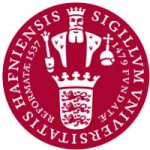项目介绍
The Kavli Institute for Systems Neuroscience is part of the Faculty of Medicine and Health Sciences at NTNU. It was established as a Centre of Excellence in 2002, again in 2012 and again in 2023 which has never happened before in Norway. It was designated as a Kavli Foundation Institute in 2007 (www.kavlifoundation.org). The work of two of the institute’s scientists, Edvard and May-Britt Moser, was awarded the Nobel Prize in Physiology or Medicine in 2014.
The positions will be associated with the research group of Weijian Zong and provide the opportunities to collaborate with or be co-supervised with renowned neuroscientists in the Kavli Institute for Systems Neuroscience.
Dr. Zong established his group at the Kavli Institute in 2023, focusing on developing cutting-edge optical tools to monitor and manipulate neural activity in naturally-behaving animals to understand the neuronal computation rulesets in cortical microcircuits. Dr. Zong has extensive experience in cutting-edge optical and lasers instrumentation and mice experiments, including the optical development and neuroscience application of a miniature portable 2-photon miniscope (MINI2P) for high-resolution multiplane imaging of thousands of neurons in the cortical tissue of freely moving mice (W. Zong et al., Cell, 2022). This transformative technology was featured in Nature and is now commercially available and used in universities and research institutions around the world. He has published 22 peer-reviewed papers including in Cell, Nature Methods, Nature Cell Biology and Proceedings of the National Academy of Sciences (>1,500 citations at the end of 2024), holds 3 innovation patents in China, authored a book chapter, and has participated in or coordinated more than 10 research projects (ANR, European, industrial).
Recently, Dr. Zong has been awarded extensive funding, including FRIRPO Young Talent and the Norwegian Brain Initiative (NORBRAIN) to support the development of next generation miniature two-photon microscopes for ultrahigh throughput, multi-brain-region and voltage imaging in freely-moving animals. The current opening positions will be associated with these projects.
The Zong Lab is a dynamic, interdisciplinary group, where we advocate for active collaboration, and where diversity of ideas, culture, identity is embraced and encouraged.
This is NTNU
NTNU is a broad-based university with a technical-scientific profile and a focus in professional education. The university is located in three cities with headquarters in Trondheim.
At NTNU, 9,000 employees and 43,000 students work to create knowledge for a better world.
You can find more information about working at NTNU and the application process here.
Required selection criteria
- For PhD candidates
Completion of a master’s degree, with a grade of B or better in terms of NTNU’s grading scale, in either1) neuroscience, biology, medicine or psychology, with a strong motivation and potential to try and adapt new technology and methodology,or2) physics, electronic engineering, optics, and biomedical engineering, with strong motivation and potential to develop new neurophotonics technologies and use them to understand neural algorithms in mammalian brain
- For postdoctoral candidates
Completion (within startup) of a doctoral degree (recognized as the equivalent to a Norwegian PhD) in neuroscience, biology, biophotonics, physics or engineering with a strong track record of paper publications (at least one published or on preprint servers) using in-vivo neuronal imaging or manipulation techniques, including calcium imaging, voltage imaging, optogenetics or all-optical approach.
- For both PhD and postdoc candidates:
- Documented experience with scientific programming (Python, Matlab, R; e.g., history of activity on Github)
- Solid scientific understanding of systems neuroscience
- Excellent communication skills in English are imperative
- Strong motivation to “push” the development of neuroscience technology
If you can document that the PhD thesis has been submitted, your application can be assessed even if you have not yet defended your dissertation. Documentation of the obtained doctoral degree must be presented before you can take up the position.
The appointment is to be made in accordance with Regulations on terms of employment for positions such as postdoctoral fellow, Ph.D Candidate, research assistant and specialist candidate.
Preferred selection criteria
- Documented experience with processing and analysis of neuron imaging data, including calcium or voltage imaging data
- Proficient in techniques used in cellular and molecular neuroscience (e.g. optogenetics, cell patching, western blot, immunohistochemistry, virus design or operation) (additional to experience with neuronal recordings)
- Documented experience with rodent surgery and experiments (e.g. a certificate from the course in Animal Research or equivalent
Personal characteristics
- Demonstrable commitment
- Strong work ethics
- Ability and interest to work in an interdisciplinary, results-oriented and multi-cultural team
Personal suitability for the position will be considered as essential for the selection.
We offer
- exciting and stimulating tasks in a strong international academic environment
- an open and inclusive work environment with dedicated colleagues
- favourable terms in the Norwegian Public Service Pension Fund
- employee benefits
Salary and conditions
As a PhD candidate (code 1017) you are normally paid from gross NOK 532 200 per annum before tax, depending on qualifications and seniority. As a Postdoctoral Fellow (code 1352) you are normally paid from gross NOK 575 400 per annum before tax, depending on qualifications and seniority. From the salary, 2% is deducted as a contribution to the Norwegian Public Service Pension Fund.
The period of employment is 3-4 years, with opportunities for extension under certain circumstances.
The engagement is to be made in accordance with the regulations in force concerning State Employees and Civil Servants, and the acts relating to Control of the Export of Strategic Goods, Services and Technology. Candidates who by assessment of the application and attachment are seen to conflict with the criteria in the latter law will be prohibited from recruitment to NTNU.
After the appointment you must assume that there may be changes in the area of work.
The positions are partly subject to external funding.
It is a prerequisite you can be present at and accessible to the institution on a daily basis.
About the application
The application and supporting documentation to be used as the basis for the assessment must be in English
Publications and other scientific work must be attached to the application. Please note that applications are only evaluated based on the information available on the application deadline. You should ensure that your application shows clearly how your skills and experience meet the criteria which are set out above.
If, for any reason, you have taken a career break or have had an atypical career and wish to disclose this in your application, the selection committee will take this into account, recognizing that the quantity of your research may be reduced as a result.
The application must include:
- CV and certificates
- transcripts and diplomas for bachelor’s-, master’s- and PhD degrees (for postdoc candidates). If you have not yet completed your Ph.D, you must provide confirmation on your estimated date for the doctoral dissertation, or that your PhD thesis has been submitted
- A copy of the master’s/doctoral thesis – depending on whether your are applying for a PhD or a postdoc position. If you are close to submitting, or have recently submitted your thesis, you can attach a draft of the thesis. Documentation of a completed degree must be presented before taking up the position.
- Academic works – published or unpublished – that you would like to be considered in the assessment.
- Research plan
- Name and contact information of three referees. Relationship between reference and applicant should be indicated.
If all, or parts, of your education has been taken abroad, we also ask you to attach documentation of the scope and quality of your entire education, both bachelor’s and master’s education, in addition to other higher education. Description of the documentation required can be found here. If you already have a statement from Norwegian Directorate for Higher Education and Skills, please attach this as well.
Joint works will be considered. If it is difficult to identify your contribution to joint works, you must attach a brief description of your participation.
In the evaluation of which candidate is best qualified, emphasis will be placed on education, experience and personal and interpersonal qualities. Ambitions, and potential will also count in the assessment of the candidates.
NTNU is committed to following evaluation criteria for research quality according to The San Francisco Declaration on Research Assessment – DORA.
General information
NTNU believes that inclusion and diversity is a strength. We want our faculty and staff to reflect Norway’s culturally diverse population and we continuously seek to hire the best minds. This enables NTNU to increase productivity and innovation, improve decision making processes, raise employee satisfaction, compete academically with global top-ranking institutions and carry out our social responsibilities within education and research. NTNU emphasizes accessibility and encourages qualified candidates to apply regardless of gender identity, ability status, periods of unemployment or ethnic and cultural background.
NTNU is working actively to increase the number of women employed in scientific positions and has a number of resources to promote equality.
—————–
The city of Trondheim is a modern European city with a rich cultural scene. Trondheim is the innovation capital of Norway with a population of 200,000. The Norwegian welfare state, including healthcare, schools, kindergartens and overall equality, is probably the best of its kind in the world. Professional subsidized day-care for children is easily available. Furthermore, Trondheim offers great opportunities for education (including international schools) and possibilities to enjoy nature, culture and family life and has low crime rates and clean air quality.
———————-
As an employee at NTNU, you must at all times adhere to the changes that the development in the subject entails and the organizational changes that are adopted.
A public list of applicants with name, age, job title and municipality of residence is prepared after the application deadline. If you want to reserve yourself from entry on the public applicant list, this must be justified. Assessment will be made in accordance with current legislation. You will be notified if the reservation is not accepted.
If you think this looks interesting and in line with your qualifications, please submit your application electronically via jobbnorge.no with your CV, diplomas and certificates attached. Applications submitted elsewhere will not be considered. Upon request, you must be able to obtain certified copies of your documentation.
Application deadline: 02.03.2025
联系方式
电话: (+47) 73 59 50 00相关项目推荐
KD博士实时收录全球顶尖院校的博士项目,总有一个项目等着你!






